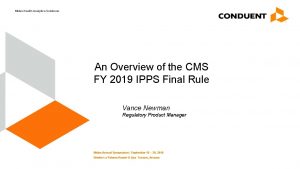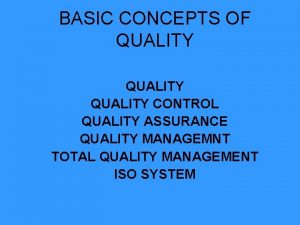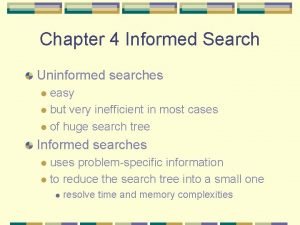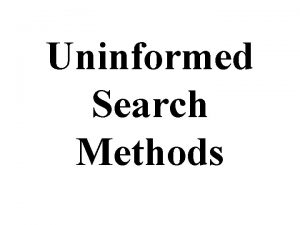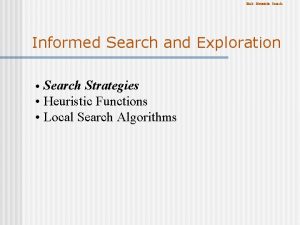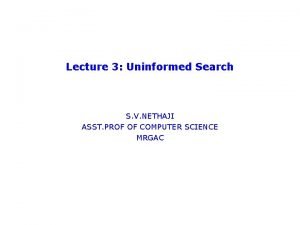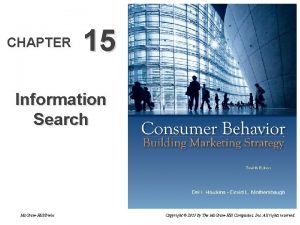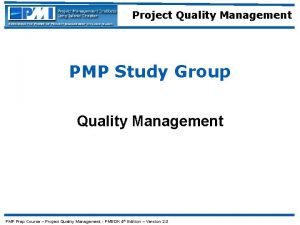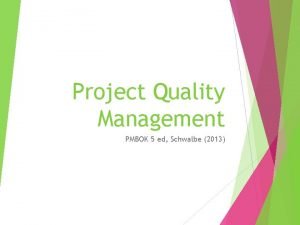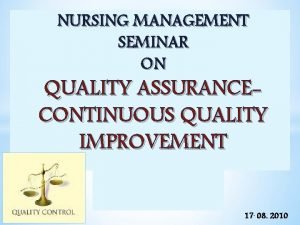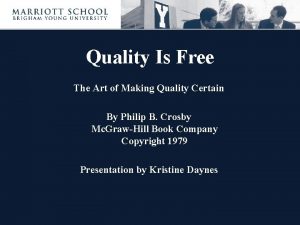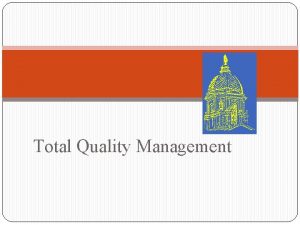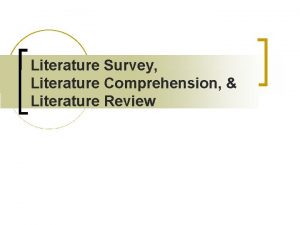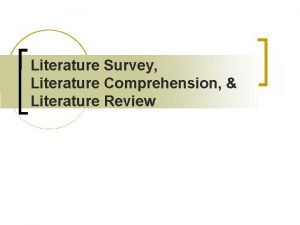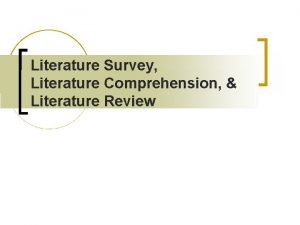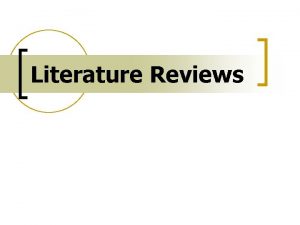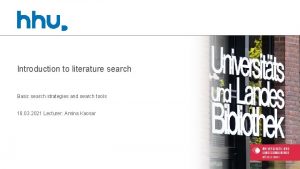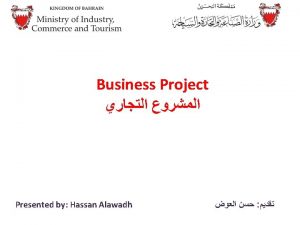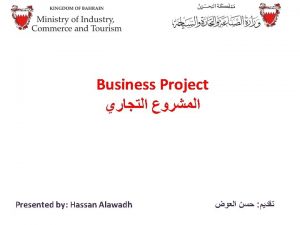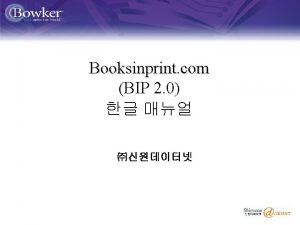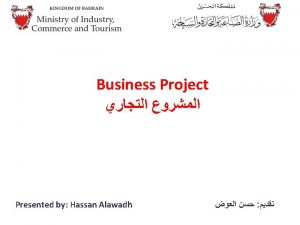Quality and reporting of literature search strategies in















- Slides: 15

Quality and reporting of literature search strategies in systematic reviews published by London School of Hygiene & Tropical Medicine affiliated authors: an assessment using PRISMA, AMSTAR and PRESS criteria Jane Falconer User Support Services Librarian

Question Yes No N/A Electronic search strategy is described for at least one database 59. 8% 40. 2% 0% Synonyms are used? 47. 5% 48. 4% 4. 1% A controlled vocabulary is used? 30. 3% 66. 4% 3. 3% Terms are truncated? 10. 7% 84. 4% 4. 9% The search syntax is adapted to each database? 13. 1% 68. 9% 18. 0%


Methodology Literature Search Web of Science Core Content • Organisation = LSHTM • Title contains “systematic review” • Year = 2015 or 2016 Random Sample n = 44 Analysis 58 item data extraction form with criteria from • PRISMA • AMSTAR • PRESS

PRISMA reporting characteristics Names of databases unambiguously stated Supplier of databases unambiguously stated Start/end dates clearly stated to at least mm/yy accuracy Fully repeatable search for one database Fully repeatable search for all databases Language not limited, or rationale for limit provided 68% 18% 32% 82% 34% 66% 55% 45% 36% 64% 55% 45% 50% Yes No

AMSTAR appraisal criteria Were both keywords and thesaurus terms provided? 52% 48% Yes No

PRESS quality criteria – basic skills 58% 64% 24% 18% 33% 3% AND OR NOT ADJ NEAR SAME used effectively truncat* used effectiv* 70% 45% 15% 24% ((brackets used appropriately) AND effectively) Yes No Unclear Not used 27% 3% search includes appropriate synonyms OR alternative words OR other words OR substitutes

PRESS quality criteria – subject headings Are the subject headings relevant? Are all relevant subject headings included, including previous terms? 67% 24% Are subject headings chosen at correct level? Not too broad/too narrow? Are subject headings exploded where necessary? Are both subject headings and terms in free text used for each concept? 6%6% 21% 49% 58% 36% 30% 64% Yes No 6% 21% 9% 12% 21% 30% Unclear 6% Not used n = 33

Overall quality score No search strategy was published 45% 11 Showed serious flaws Major problems leading to lack of confidence in study validity 20 Minor problems unlikely to impact study validity No problems with reporting or search quality 10 25% Could not be assessed due to lack of information 7% 3 Good quality search, clearly reported




Image in the public domain, via Wikimedia Commons

References • Gómez-Sánchez, A. F. , et al. (2016). Evaluating the information retrieval quality and methodological accuracy of systematic reviews and meta-analysis on congenital malformations (2004 -2014). Paper presented at the 15 th EAHIL Conference, Seville, Spain. http: //www. bvsspa. es/eahil 2016/wpcontent/uploads/2016/05/G 4. pdf • CWTS (Centre for Science and Technology Studies) (2017) CWTS Leiden Ranking 2017. [website]. Leiden University, Netherlands. http: //www. leidenranking. com/ranking/2017/list • THE (2014) REF 2014 results: table of excellence. [website] https: //www. timeshighereducation. com/news/ref-2014 -results-table-of-excellence/2017590. article • Page, M. J. , et al. (2016). Epidemiology and Reporting Characteristics of Systematic Reviews of Biomedical Research: A Cross-Sectional Study. PLo. S Med, 13(5), e 1002028. doi: 10. 1371/journal. pmed. 1002028 • Sampson, M. , & Mc. Gowan, J. (2006). Errors in search strategies were identified by type and frequency. J Clin Epidemiol, 59(10), 1057 -1063. doi: 10. 1016/j. jclinepi. 2006. 01. 007 • Bullers, K. , et al. (2018). It takes longer than you think: librarian time spent on systematic review tasks. J Med Libr Assoc, 106(2), 198 -207. • Page, M. J. , & Moher, D. (2017). Evaluations of the uptake and impact of the Preferred Reporting Items for Systematic reviews and Meta-Analyses (PRISMA) Statement and extensions: a scoping review. Systematic Reviews, 6(1), 263. doi: 10. 1186/s 13643 -017 -0663 -8 • Mead, T. L. , & Richards, D. T. (1995). Librarian participation in meta-analysis projects. Bull Med Libr Assoc, 83(4), 461 -464. • Rethlefsen, M. L. , et al. (2015). Librarian co-authors correlated with higher quality reported search strategies in general internal medicine systematic reviews. J Clin Epidemiol, 68(6), 617 -626. All photographs from Pexels (https: //www. pexels. com) unless otherwise noted and distributed under a CC 0 license.

Jane Falconer jane. falconer@lshtm. ac. uk @falkie 71 ORCID: 0000 -0002 -7329 -0577
 Midas healthcare solutions
Midas healthcare solutions Quality assurance vs quality control
Quality assurance vs quality control Quality assurance vs quality control
Quality assurance vs quality control Informed and uninformed search in artificial intelligence
Informed and uninformed search in artificial intelligence Blind search
Blind search Informed (heuristic) search strategies
Informed (heuristic) search strategies Successful job search strategies
Successful job search strategies Which search strategy is called as blind search
Which search strategy is called as blind search Mobirati
Mobirati Pmp quality management
Pmp quality management Pmp gold plating
Pmp gold plating Quality assurance model in nursing
Quality assurance model in nursing Quality improvement vs quality assurance
Quality improvement vs quality assurance David a garvin 8 dimensions of quality
David a garvin 8 dimensions of quality Crosby's fourteen steps to quality improvement
Crosby's fourteen steps to quality improvement Old quality vs new quality
Old quality vs new quality
